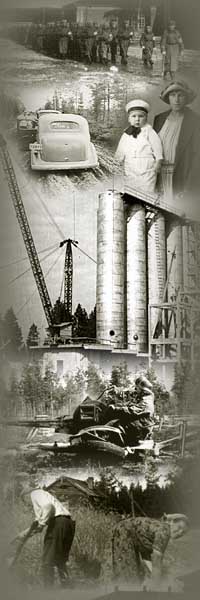 |
 |
|
Summary:
Niina Timosaari,
Jibaro-women in Rafael Karsten’s Anthropological Studies
Rafael Karsten (1879–1956) was a professor of practical philosophy in
Helsinki University and an anthropologist, whose field-studies
concentrated on South-American Indians. He was one of the first
anthropologists, who used not only men, but also women as informants
in his studies. While conducting extensive fieldwork he realised that
women have power to reshape and uphold cultural structures as well.
The early 20th century anthropology has been blamed of being
male-biased, and it was not until than from the 1970´s onwards with
the influence of women’s movement that the anthropologists started to
pay more attention on women. It has to be taken for further
examination why Rafael Karsten, who was advised by one of the leading
ethnologist in England to ignore women in his anthropological studies,
refused to accept this advice. From Karsten´s point of view, women
were not only as good informants as men, but sometimes even better.
Rafael Karsten was far and foremost an anthropologist, who was
interested in religion and magic. It can be argued that one of the
main reasons why he studied and interviewed jibaro-women was the fact
that they had a key role in the religious ceremonies of
jibaro-culture. Ilona Salomaa came to this conclusion in her
dissertation and I studied the matter further in my master’s thesis
“Rafael Karsten jibaro-naisten kuvaajana”.
What other factors, besides the role that jibaro-women had in the
religious ceremonies, affected Karsten’s decision to use women as
informants and study women? Karsten was a cultural radical and a keen
critic of Christianity as was his tutor and mentor Edvard Westermarck,
the vice-president of Prometheus-society that promoted freedom of
religion. This article discusses the relationship between Karsten´s
anthropological studies on women and the criticism towards religion
that he was able to conduct with his studies. He altered the existing
view of indigenous women as oppressed slaves of their husbands, which
was a popular belief among missionaries, and even among early
ethnographers. Karsten proved with his research the influence and
status that jibaro-women had. Karsten’s studies on jibaro-women made
it possible for him to criticize some theories of his mentor, Edvard
Westermarck. With his studies on jibaro-women Karsten got valuable
ethnographic material that made it possible for him to criticize
western values, Christianity and existing anthropological views.
Faravid
30/2006
|
 |